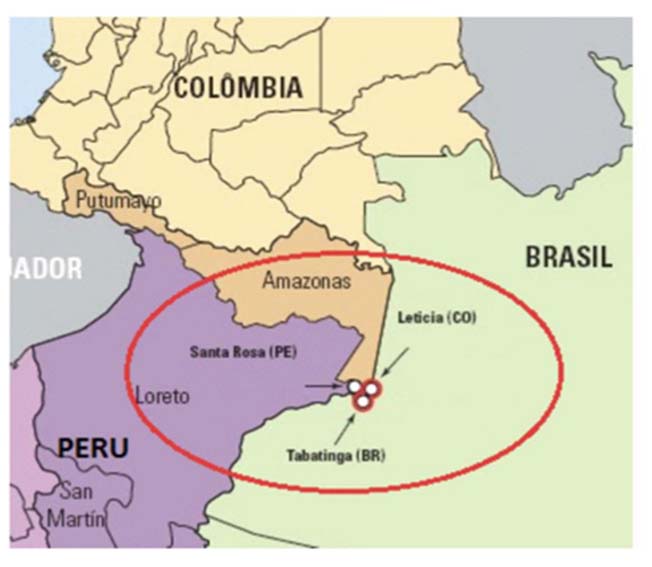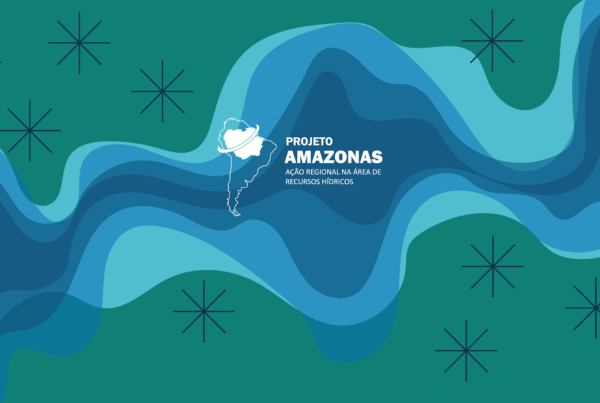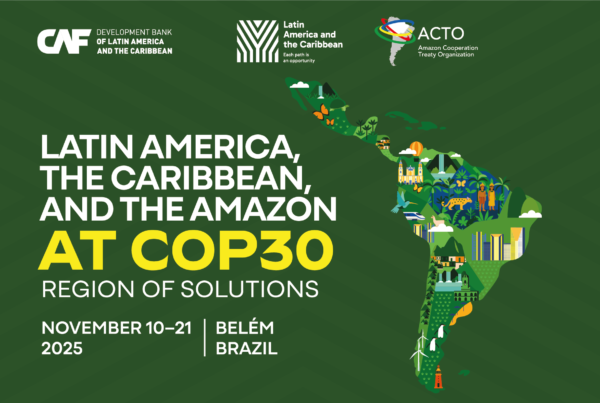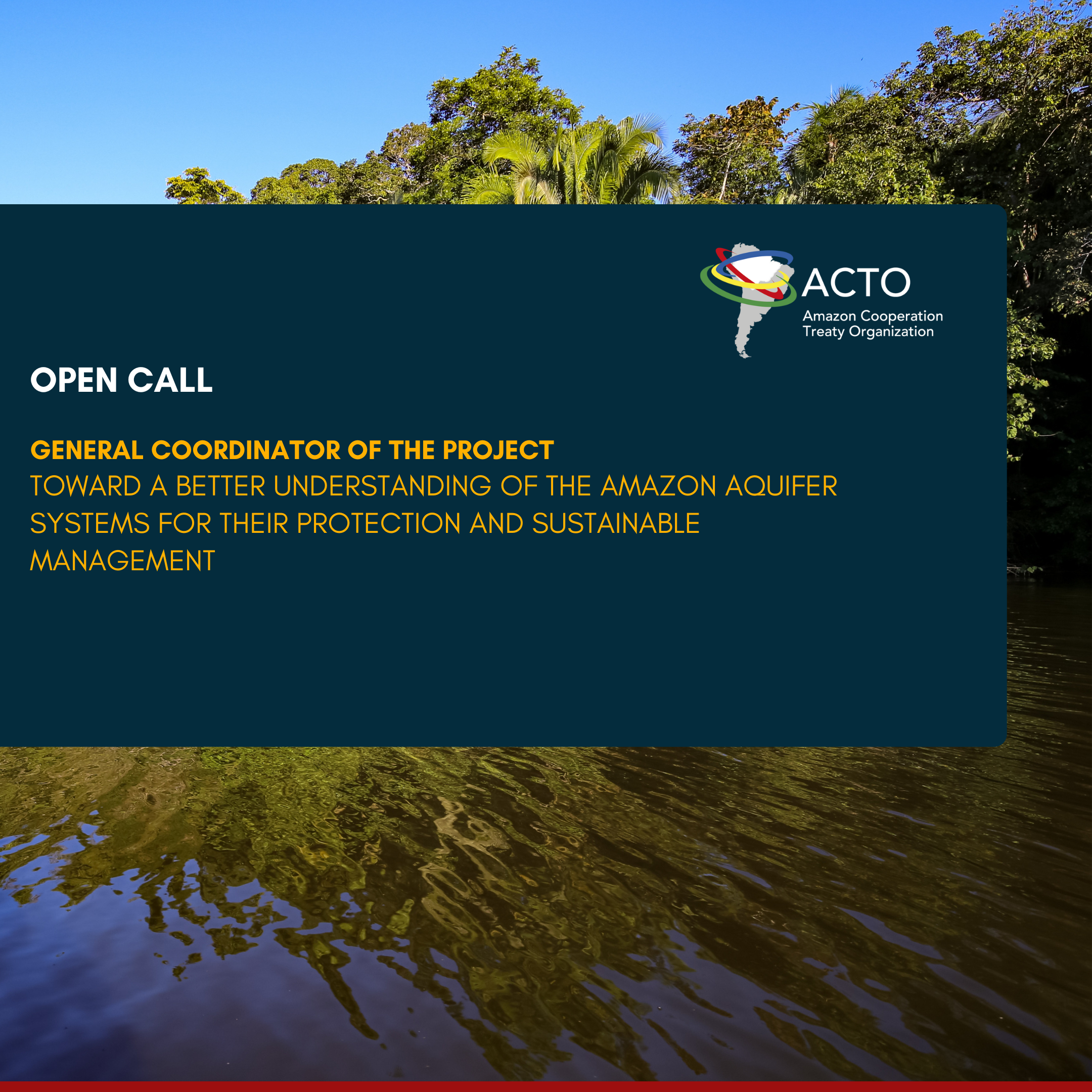In the context of the project Contingency Plan for Health Protection in Highly Vulnerable Indigenous Peoples and in Initial Contact, the technical team that prepares the Situational Health Studies with Territorial Base in the tri-border region (Yavari-BRA, Loreto-PER and Leticia-COL), together with the project coordinator, carried out a technical mission.
This 8-day mission began in the city of Iquitos (Peru), where the ACTO delegation departed by boat, sailing down the Amazon River to the tri-border region, including the main urban centers where the health services are located: Tabatinga (BRA), Bejamin Constant (BRA), Atalaia do Norte (BRA), Leticia (COL), Santa Rosa (PER) and Islandia (PER).
During the visits, government representatives, indigenous peoples and organizations, and NGOs were interviewed about the health situation in the Peru-Brazil-Colombia Triple Border, including the situation of COVID-19. The objective was to collect suggestions and information that can contribute to the project activities Contingency Plans for Health Protection in Highly Vulnerable Indigenous Peoples and in Initial Contact which are implemented together with the Pan American Health Organization (PAHO), with funding from the Inter-American Development Bank (IDB).
The planned agenda was fulfilled without difficulties, respecting all COVID-19 protocols. Previously, the ACTO Delegation participated, in Iquitos, in the Tri-National Meeting of Health Secretariats on the Peru-Brazil-Colombia Triple Border and also in meetings with the Loreto Regional Health Directorate (DIRESA-Loreto), where updated epidemiological information on health in the region was obtained.
It is important to note that the data collected are of great relevance for the technical consultancies linked to this region and to the work that the project is carrying out in the region of the Yavari Valley, border Peru/Brazil, in the region of the Putumayo/Içá river in the border region Peru/Colombia/Brazil, and in the region of the Napo, Curaray and Tigre rivers, in the border Peru/Ecuador.
Atalaia do Norte (Brazil)
In Atalaia do Norte, Brazil, a meeting was held with representatives of the Marubo, Matis, Matsés, Kanamary and Kulina indigenous peoples, members of the indigenous organization União dos Povos Indígenas do Vale do Javari (UNIVAJA), in the state of Amazonas. On this occasion, information was verified on threats in the region and in particular on the health situation.
During the interventions of the indigenous representatives, the importance of traditional medicine and an effective intercultural dialogue for the treatment of their diseases and health care was highlighted – including the fight against COVID-19. Participants also emphasized the need to develop regional and cross-border contingency plans, with the full participation of indigenous representatives, local health authorities and support organizations.
In addition, the cases and deaths that occurred in the communities, the progress of vaccination and the need for the bodies responsible for indigenous health to proceed with the follow-up of the sequelae caused by COVID-19 in people who were infected were reported. Finally, a technical mission was agreed to very remote communities to know the real situation of vulnerability and threats in which they live.
In addition, contacts were established with the local hospital and the staff of the Special Indigenous Health District (DSEI) for the Yavari region were interviewed with a questionnaire prepared by ACTO technicians to gather the opinions and information of the main actors involved in contingency plans for the health protection of vulnerable indigenous peoples.
Tabatinga (Brazil)
In the city of Tabatinga, Brazil, the mission visited the local headquarters of the National Indian Foundation unit (FUNAI) responsible for actions to protect Indigenous Peoples in Isolation and in Initial Contact (PIACI) and the unit of the body directly linked to indigenous peoples in the Brazilian tri-border region, which monitors the situation of the Tikuna people, given their cross-border dimension in the three countries of the region.
In addition to discussions with federal agents of the indigenist body, the technical team held a meeting with the Special Secretariat for Indigenous Health (SESAI) of the Upper Solimões River, in which the emergency situation to which the indigenous peoples were subjected due to the COVID-19 Pandemic was reported. An interview was also conducted with the Director of the Tabatinga Garrison Hospital, Colonel Pedro Leopoldo, one of the health institutions of reference for the treatment of indigenous patients of medium complexity from newly contacted groups.
In the field of civil society, a visit was made to the regional office of the Center for Indigenous Work (CTI), where the delegation of ACTO was received by the staff of the Program Javari. At this meeting, the situation of indigenous peoples and communities in the Yavari Valley was discussed and contributions were presented for the preparation of contingency plans for this region.
Leticia (Colombia)
In the city of Leticia, Colombia, the technical team met with Paola Chaparro, Public Health Coordinator of the Regional Health Secretariat of the Department of Amazonas and her professional team of ethnic groups who made some suggestions for the achievement of the project activities and shared data information that will contribute to the study on the health situation with a territorial basis. Likewise, they extended the invitation to the technical team of ACTO to the inter-sectoral dialogue table with all the indigenous representatives of the Amazon for the month of December of this year. Important space to establish dialogues and articulation with all governmental and non-governmental sectors, indigenous and non-indigenous, with a territorial base in the Amazonian trapezium.
Following up on the mission, a meeting was also held with National Natural Parks of Colombia-Amazon Region who, from the protection of the flora, fauna and environment of the Amazon ensure the health care and rights of the PIACI.
Finally, contacts and dialogue agenda were established with the NGO Amazonas Conservation Team (ACT), with strong activity in the vicinity where indigenous peoples live in isolation and in initial contact (Puré river, Caquetá river and Putumayo river) that in cooperation with the Ministry of the Interior of Colombia and with the support of the indigenous communities of the region, implement territorial protection for these highly vulnerable peoples.
Islandia (Peru)
In Islandia, Peru, the local Health Center was visited, led by Sanitarist Mario Gomez, who described the situation of the Health District under his jurisdiction and highlighted the difficulties in vaccination, caused by religious groups with strong interference in the local population. The CS Islandia team provided relevant information to the ACTO technical team on the health situation in the Yavari district.



